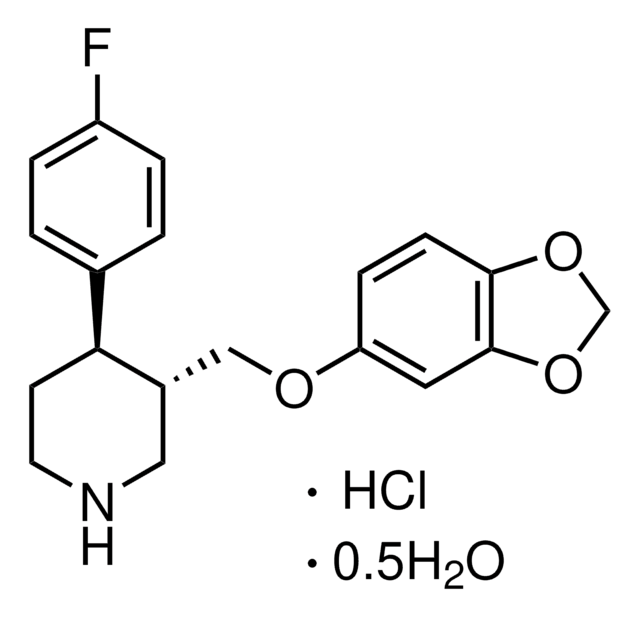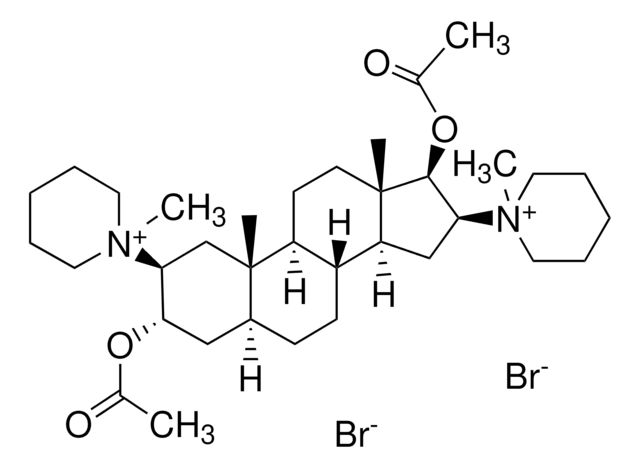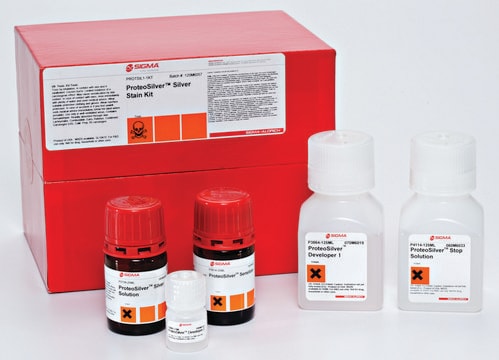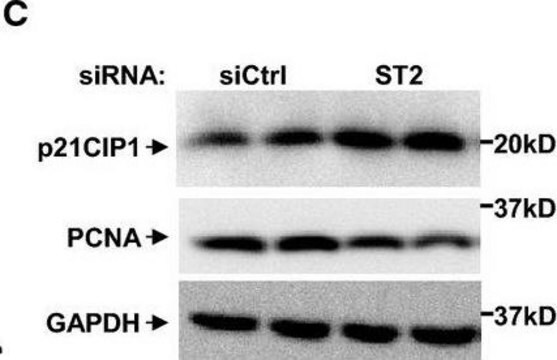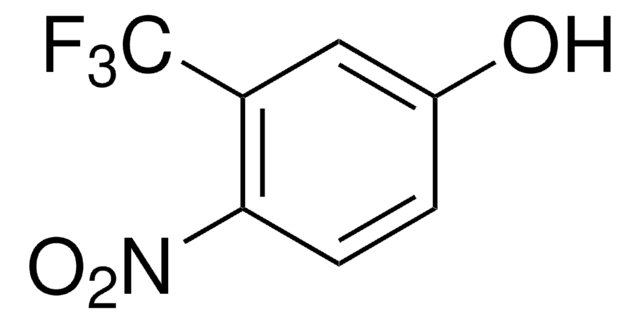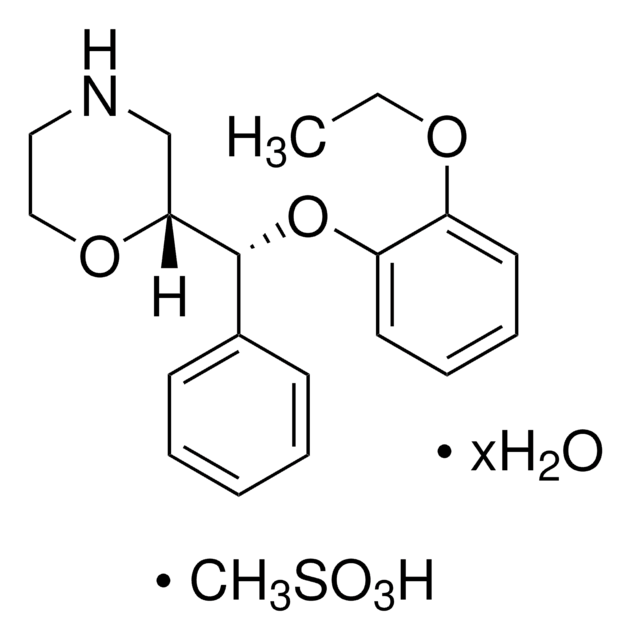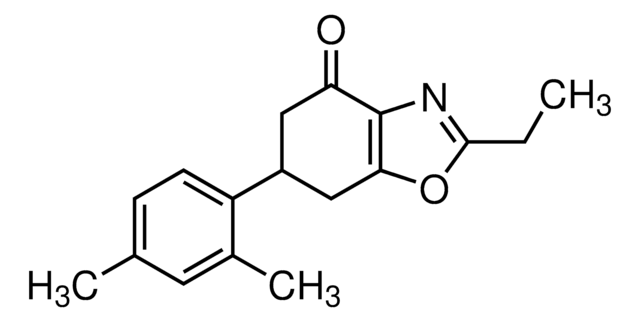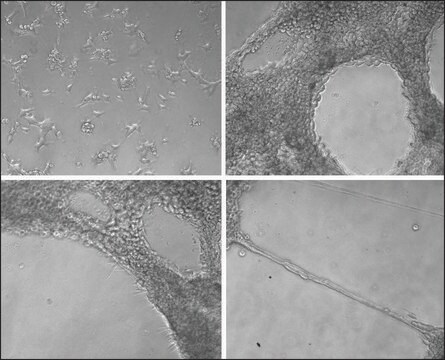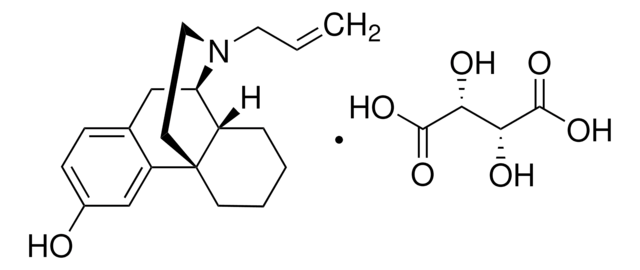P8996
Monoclonal Anti-PINCH-1 antibody produced in mouse
clone PINCH-C58, purified immunoglobulin, buffered aqueous solution
About This Item
Prodotti consigliati
Origine biologica
mouse
Coniugato
unconjugated
Forma dell’anticorpo
purified immunoglobulin
Tipo di anticorpo
primary antibodies
Clone
PINCH-C58, monoclonal
Stato
buffered aqueous solution
PM
antigen ~37 kDa
Reattività contro le specie
hamster, bovine, mouse, monkey, canine, human, rat
tecniche
immunoprecipitation (IP): suitable
indirect ELISA: suitable
western blot: 1-2 μg/mL using total cell extract from 293T cells
Isotipo
IgG1
N° accesso UniProt
Condizioni di spedizione
dry ice
Temperatura di conservazione
−20°C
modifica post-traduzionali bersaglio
unmodified
Informazioni sul gene
human ... LIMS1(3987)
mouse ... Lims1(110829)
rat ... Gcc2(309798)
Descrizione generale
Immunogeno
Applicazioni
- enzyme linked immunosorbent assay (ELISA)
- immunoblotting
- immunoprecipitation
- co-immunoprecipitation
Azioni biochim/fisiol
Stato fisico
Esclusione di responsabilità
Non trovi il prodotto giusto?
Prova il nostro Motore di ricerca dei prodotti.
Codice della classe di stoccaggio
10 - Combustible liquids
Classe di pericolosità dell'acqua (WGK)
nwg
Punto d’infiammabilità (°F)
Not applicable
Punto d’infiammabilità (°C)
Not applicable
Scegli una delle versioni più recenti:
Certificati d'analisi (COA)
Non trovi la versione di tuo interesse?
Se hai bisogno di una versione specifica, puoi cercare il certificato tramite il numero di lotto.
Possiedi già questo prodotto?
I documenti relativi ai prodotti acquistati recentemente sono disponibili nell’Archivio dei documenti.
Il team dei nostri ricercatori vanta grande esperienza in tutte le aree della ricerca quali Life Science, scienza dei materiali, sintesi chimica, cromatografia, discipline analitiche, ecc..
Contatta l'Assistenza Tecnica.